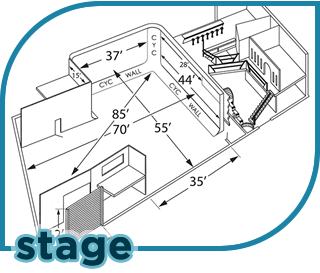How Acoustical Foam Improves Soundproofing
 Objects with mass are the only way to effectively prevent unwanted noise from entering or exiting your home studio or home theatre. Sound absorbing objects are necessary to dampen the sound waves and interrupt their transmission. BUTTER TREE STUDIOS shares some common objects used to assist in sound proofing. Include installing a second wall, heavy curtains, soundproof windows, and fabrics such as wool. Acoustical blankets can be attached to the walls, creating the same effect.
Objects with mass are the only way to effectively prevent unwanted noise from entering or exiting your home studio or home theatre. Sound absorbing objects are necessary to dampen the sound waves and interrupt their transmission. BUTTER TREE STUDIOS shares some common objects used to assist in sound proofing. Include installing a second wall, heavy curtains, soundproof windows, and fabrics such as wool. Acoustical blankets can be attached to the walls, creating the same effect.
How acoustical foam works:
This material is used to help the sounds within a studio, not to soundproof the room. It is often used by people creating a home studio or home theater for better sound within the room. For best results, it must be spaced properly. Spacing of at least two inches away from the wall is the best for increasing absorption. A wood frame is most commonly used for attaching the foam.
Foam works best for absorbing high and mid frequency sound waves. Low frequency sounds are more difficult to absorb. These products are rated based on the lowest frequency they are capable of absorbing. This range is based on the thickness of the foam.
Thicker foam is more absorbent and more effective for a wider range of sound waves. These products are available in thicknesses ranging from one to four inches. The thicker the foam works with lower frequencies. Look for this information before buying. You will find the price is affected by the thickness of the foam. This is due to material and production costs, which are higher.
Different Types of Soundproofing Foam:
A few materials are used in acoustical foam. The most common are polyurethane, melamine and fiberglass. Compressed fiberglass is most often used by professionals. This material has a class 1 rating for fire safety. The higher the safety rating, the more expensive the product. Buy the best quality products you can afford. Look for a class 1 rating. The extra expense is worth your peace of mind.
Polyurethane is the least expensive type on the market. Unfortunately, most products made with this substance have the lowest rating for fire safety, a class 3 rating. In some areas, polyurethane won’t pass safety inspections. If you must use this material, make sure you have sufficient fire exits in the room. Better yet, save your money and wait until you can afford a better quality product.
These products are sound absorbers and are used to muffle sound waves in the insulation. Foam used in soundproofing is porous. This helps the foam absorb the sound waves. The more porous, the more efficient the product will be for sound absorption.
Foam is applied in various ways, depending on the product. The most common and easy to use is foam in the form of sheets, similar to attic insulating products. This can be cut to the size you need with scissors. Some varieties can be sprayed or blown in between walls, ceiling tiles or flooring. Foam under thick carpeting is sufficient for floor insulation.
Safe use of acoustical foam:
Acoustical foam is rated for fire resistance. Cheap polyurethane foams are not fireproof can be hazardous in the event of a fire. Polyurethane has an added drawback in a fire. This foam releases dangerous fumes into the air during a fire. Inhaling these fumes is more dangerous than inhaling the smoke from the fire. All fire resistant products produce these fumes, as a result of chemicals used to make the fabrics fire resistant.
Melamine is used as a foam substitute; it is ceramic based. This material is used in class 1 ceiling tiles. It has high sound absorption properties and works well as soundproofing material. Melamine bends and curves easily, making it very workable for custom fitting necessary for some situations. This product is significantly more expensive than polyurethane, costing as much as double.
Commercial grade products are usually made with compressed fiberglass. This material is made with sand and doesn’t burn. In terms of safety, this is the best. Just about all products made with fiber glass have the highest rating in terms of safety.


















